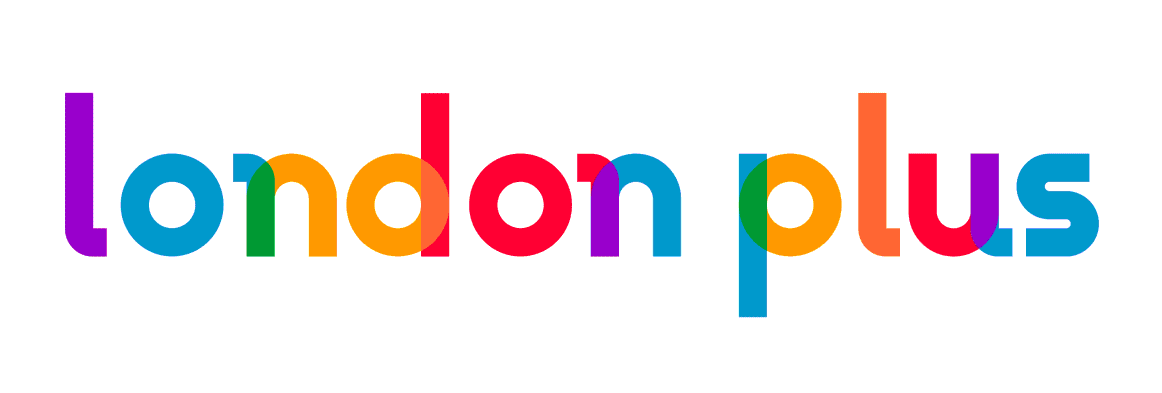This is a talk I gave at an event of local authority community engagement officers from across London. The pandemic saw close working between local authorities and the voluntary and community sector in London. The cost of living crisis is restoring close working in places where it had waned a little. In my talk, I said that continued collaboration between the two sectors is important and is one of two core ideas that should guide local authorities’ thinking. The second idea is information sharing.
I am the head of London Plus, a small and still young charity that connects and supports London’s charities and community groups.
I am going to give some general pointers about how local authorities can work with — engage, use, and support — charities and community groups during the current cost of living crisis. Also, I will illustrate them with examples from a range of London boroughs.
Many of these ideas are obvious.
And many of them are being used.
But not all ideas are being followed. And not all of the time, nor as much as might be the case. Extending these approaches, deepening their use so they become commonplace and habitual, will offer lasting value during and beyond the cost of living crisis.
I am not going to spend time discussing the pressures organisations in the voluntary and community sector are dealing with. I am an economist by background and it is tempting to go into a lecture about inflation and the cost of living, an economy in recession, big falls in household real incomes, etc.
But you know all that stuff anyway — you know what is going on in your communities across the capital. It doesn’t help you to hear it repeated. I want to emphasise what you can do, and give examples.
There are two core ideas underlying what I will say.
Collaborative Work
The first idea is that the voluntary and community sector working with local authorities is better than each working separately.
The whole is greater than the sum of the parts.
You have resources, expertise, and authority, that charities don’t.
The voluntary and community sector has reach, can act faster, is more nimble, has a different form of credibility, and can engage communities neglected and disadvantaged in the past. Among other things, this often gives the sector information you don’t have.
Information Sharing
The second core idea is that the supply and the flow of information are important.
We need collectively to improve the supply and the flow of information — as well as collecting more and better data, encourage sharing, and make data accessible to everyone who might benefit from it. This makes it easier to understand and navigate the system. That way, we can squeeze the maximum value out of available resources. Doing this well requires understanding and acting on the first core idea of cooperation and collaboration.
As local authorities, you can do more than just fund charities and community groups, in other words. You can convene, you can share, and you can encourage (or even force) others to do the same. You can use your position, your offices, and your status, to make the “system” work better.
Plus, you have the means to take the two ideas — of the whole being greater than the sum of the parts, and information flows — and bring them to life in ways that help vulnerable residents and delivers lasting value.
Information & Collaboration Examples
Let me make all this less abstract. Let me try to bring it to life with some examples of good practices from different London boroughs.
Barking and Dagenham – Collaboration
Barking and Dagenham has commissioned six local organisations to work in different parts of the borough, finding and helping residents with cost of living problems. Citizens Advice is leading a referrals process for households across the borough who need help, with a fast track to the council’s money hub.
This is about cooperation, collaboration, and sharing information — within the voluntary sector and between the sector and the local authority.
Each of those words and the actions they represent are needed.
Kingston, Hillingdon & Merton – Online Information Sharing
Connected Kingston is a website that helps Kingston residents find activities and navigate local services. It is run by the council and Kingston Voluntary Action, the local CVS, in conjunction with other local charities and statutory organisations.
These are lots of examples like this of information sharing and collaborations to help residents.
Hillingdon has a great guide on its website, a Winter Wellness Directory, which is a comprehensive list of where to get help. This was produced by H4All, the council-sponsored coalition of charities working to support the sector in the borough.
Merton’s website gives useful information about five categories of help
- debt, housing and welfare
- emergency food and fuel
- energy saving help
- funding support
- funding for organisations
Let me pick on Merton and Hillingdon to make a point about collaboration and information. I could make this about many boroughs, so I am not singling our Merton and Hillingdon to criticise them.
There are 22 links on the Merton site for the first three categories applying to households. This is a lot to navigate, particularly if you are a household struggling and probably anxious and fearful.
Hillingdon’s wellness guide is equally comprehensive and is difficult to digest precisely because of this. It is 46 pages long and 14MB if you download it directly (thankfully, the information is often broken down elsewhere on the council website, but the challenge of how to navigate the available information remains).
That is a lot of information in either case.
No one is at fault for this, but it needs help for households to find the right place to go.
We need as much collaboration as possible, so that a household can navigate the system painlessly, without visible or complicated joins between organisations.
Greater collaboration can help the “system” get closer to the idea of “no wrong door” for households, an approach modelled in other fields. There are a range of ways of doing this.
Kensington and Chelsea, Barnet & Newham – Crisis Collaboration
Like many boroughs, Kensington and Chelsea has a cost of living crisis team that includes the local voluntary and community sector. This is commonplace but it should not be dismissed trivially because of that. Sharing information between sectors, and across organisations or departments is crucial. It is about making the system as a whole work better.
Barnet has a “Making every contact count” guide for its staff so they can direct people accurately and seamlessly. Volunteers too can access a module to make every contact count.
The idea of a single entry point to help is one of the principles underlying Barking and Dagenham’s approach; reducing the number of places people need to go to get the right help.
Newham is addressing the challenges by appointing a series of voluntary “Cost of Living Emergency Response Champions”. Champions will receive regular information about how to get support and help, how to support others, and how the council is responding. They can share this information with their family, friends, and wider communities.
Information Sharing – Trial and Error

More, better, easily accessible, shared information is crucial. These are different ways of making that happen.
I am obsessed with how information flows to make systems work better. And, annoyingly, I don’t always get it right myself and have to acknowledge that. For example, I sat on a call the other day talking about food aid in London, on which everyone lambasted Slack, the information channel a group of us are using to support information sharing and collaboration. In a confessional tone, many people said they didn’t bother to log into it at all. These are organisations at the sharp end of the cost of living crisis, who have information, and need it too . Bluntly, our information system isn’t working — it has failed and we have to change it.
I start from the premise that if people aren’t using a platform, the problem is the platform, not the people. During a cost of living crisis, we need to provide information in ways people can use it, and set up systems where people are.
New ways to Collaborate
In that same spirit, Kensington and Chelsea is trying out a traveling community hub model. An accessible service offering financial, food, and other support for people who might not otherwise come to access advice and support, including those who wouldn’t go to food banks.
They are doing this in partnership with statutory and voluntary services.
At the risk of stating the obvious, but emphasising an important, point — partnership is key here. No one organisation can do this alone.
Another example of cooperation to reach vulnerable groups is in Southwark.
Southwark council is using the local voluntary sector infrastructure body, Community Southwark, to track down residents who might be vulnerable and overlooked. 1,500 households have been referred for extra cost of living payments.
The idea of collaboration and cooperation can be taken further.
Redbridge has a “Help your neighbours” web page which is admirable for its simplicity. Ealing has one too. These examples highlight a related point.
Local authorities can start with their own services and how they help households deal with the cost of living crisis. They can — and should — extend this and work even more with other groups, including pushing these to work with one another (such as in Barking and Dagenham or Southwark; Barnet would be another example — the list goes on).
Community Collaboration
Going even further, they can ask their residents to support others. This is what Redbridge and Ealing are nudging toward, by offering examples and links. For example, Ealing tells people what donations are needed at the food bank.
There is a fine, but important, line between providing links and encouraging people to do more. The latter could include encouraging people to give money though.
The London Community Foundation’s “Together for London” cost of living appeal, for example, might be a suitable place to direct people to. Or a local giving scheme. The core point is that tackling the cost of living crisis has to be a collective effort.
As part of this, local authorities must, of course, use their own resources to help.
The Issue of Funding
Funding is obviously important for the voluntary and community sector. Organisations are struggling, many seriously. Pro Bono Economics, a charity I set up to help the wider sector with analysis and data, says many charities are facing a 50% hike in energy bills with around half also expecting demand for their services to exceed capacity to help.
“More money, please” is the never-ending mantra from charities. You have certainly heard it many, many times. And sometimes the “please” gets left out, I know. The sector can come across as a little entitled at times, I confess.
But there is an acute need now. And a risk that we lose vital organisations. I hear every day about organisations struggling to meet demand or pay bills or retain staff. So “more money, please”, yes!
Some local authorities are addressing this with specific funds.
Camden has introduced a fund designed to help organisations at risk of toppling over. At least one other borough is doing this privately and without publicity.
Funding concerns are hitting food banks and surplus food providers too. Large fridges are expensive to run. The Felix Project, for example, is seeing energy and transport costs 25% higher right now.
Food Aid – A Growing Concern

I want to focus a bit more on food, if I may.
In a survey from early last year for the Centre for London, 9% of Londoners had recently used a food bank. Almost one in ten. That is before the surge in food and energy prices. The number is certainly much higher now, but accurate and up-to-date figures are hard to come by.
The principle of cash first — espoused brilliantly by the Independent Food Aid Network, which helps boroughs produce great leaflets on cash support — is important. If you haven’t worked with IFAN to produce this information for your borough, please consider doing so.
But many households will nonetheless be dependent on food aid for much of this year. We need the system to work well to help these and avoid potential calamities. There are in-built problems with food aid — when demand goes up, supply goes down, in essence. That sort of perverse behaviour of a system or a “market” offends the natural order of things for an economist like me. More importantly, it risks leaving people hungry.
The good news is that there is not currently a shortage of food. Yes, food donations are falling, and many households who donated are now turning up at food banks in need. But food surplus charities say they have enough food to give out. There is a technical challenge though. Sometimes it is hard to get food to groups that can give it to households in need.
Food Aid and The Importance of Collaboration
Let me give one example, of a borough that I won’t name. A large surplus food charity makes deliveries to this borough — seven van loads of food a week. This gets distributed across the borough to community groups and food banks. The surplus food charity could provide more, but they need the infrastructure locally; drop-off points where community groups they serve can collect food. It is not feasible for them to deliver to all destinations in the borough.
A drop-off point needs both a place, and it needs to be peopled. That does need money. But it is not money simply to buy food. It is a small amount of money that can leverage a lot of help for local residents.
Without this, the charity cannot do more. It will remain at seven van loads a week. And people might go hungry.
We saw a need for volunteers to help with food deliveries over the holidays. Volunteer numbers in food banks and other food charities were struggling to cope. This is something we at London Plus were able to help with, along with other organisations.
The key is, as ever, a mixture of information, better connections, and a little bit of money to lubricate the system. It is rarely money alone. The food system in London is a technical challenge more than it is about cash to buy food.
Yes, it is a financial challenge in the obvious sense that it starts with people who don’t have enough cash. And that is wrong, to be lamented and, many would argue, should be challenged. But, given that starting point, it becomes a technical challenge — how can we alleviate and address the need for food aid. Charities and local authorities together can help fix that.
I happen also to think that London as a whole needs a strategy around food aid; the GLA is grasping the nettle on this, which is encouraging. Supermarkets, businesses and government need to — and can — do more. We all have something to do to make things better.
Stronger Together
London is not going to get through the cost of living crisis unscathed. But a lot can be done to make it easier.
The voluntary and community sector is working on this and doing so, as ever, in difficult and challenging circumstances.
Local authorities are working on it too. And are doing so, as ever, in difficult and challenging circumstances.
The two forces combined are better than each acting alone.
What does that mean you should do? I think it means more of some of the stuff I have mentioned in the dozen or so boroughs I have named, plus similar stuff in those I haven’t touched on.
Think — information; improving the quality, making it easier to access and flow better.
And think collaboration; maximising the combined value of the voluntary and community sector and local authorities by working together.
Those two words — information and collaboration — and the ideas they represent, are far from trite. Thinking about them carefully and applying them determinedly offers ways forward in — that most hackneyed and over-used phrase — these challenging times.
If London Plus can help you with this, we are happy to do so. We have produced two guides which you can see on our website; a directory of resources and a good practice guide. The latter tries to collect some of the good stuff we see happening. All the examples I have used today come from the good practice guide. The more we can develop these documents, the more we can highlight and encourage ways of working with the local voluntary and community sector.
Thank you.
Martin Brookes
London Plus
20 January 2023

